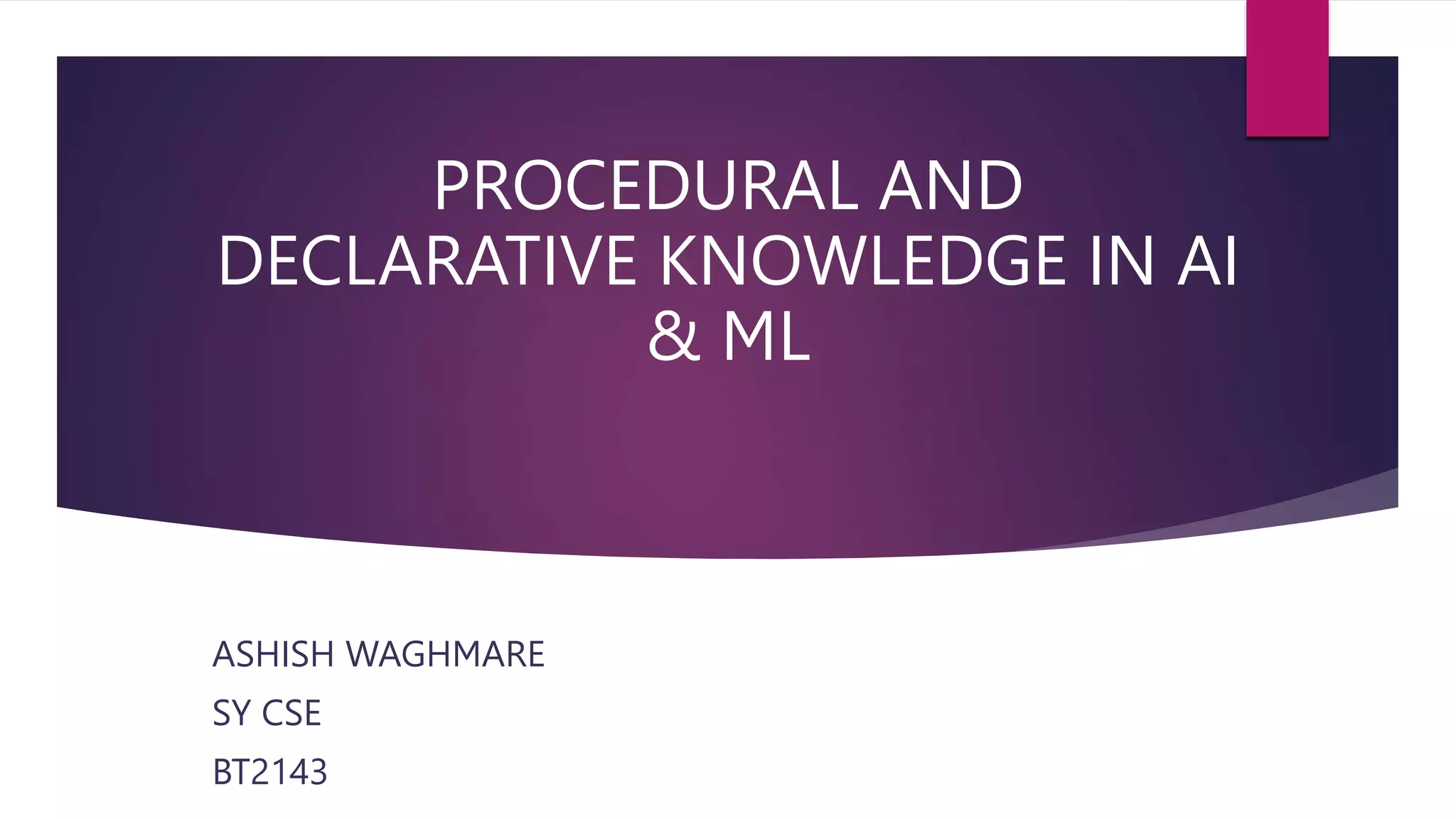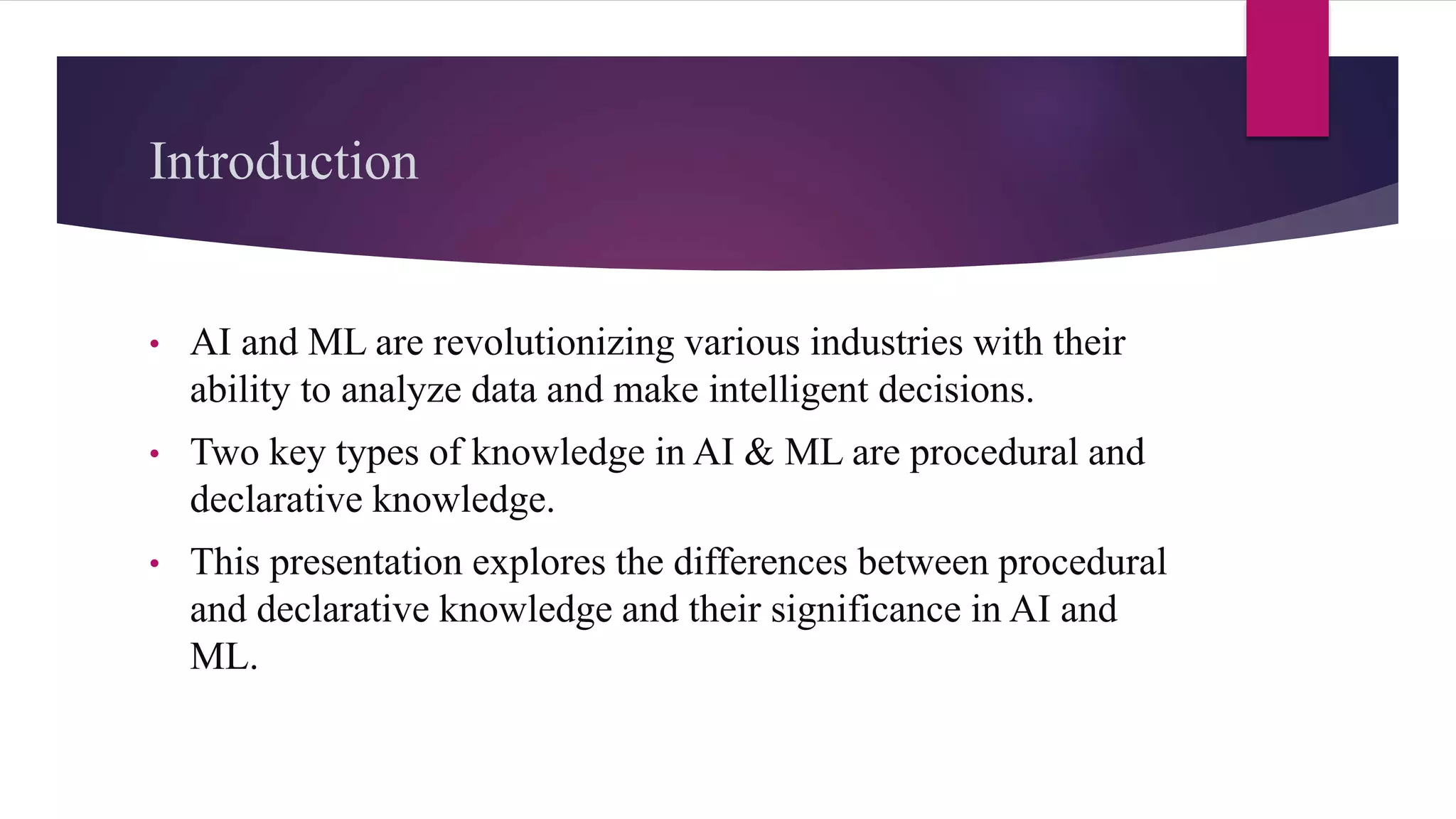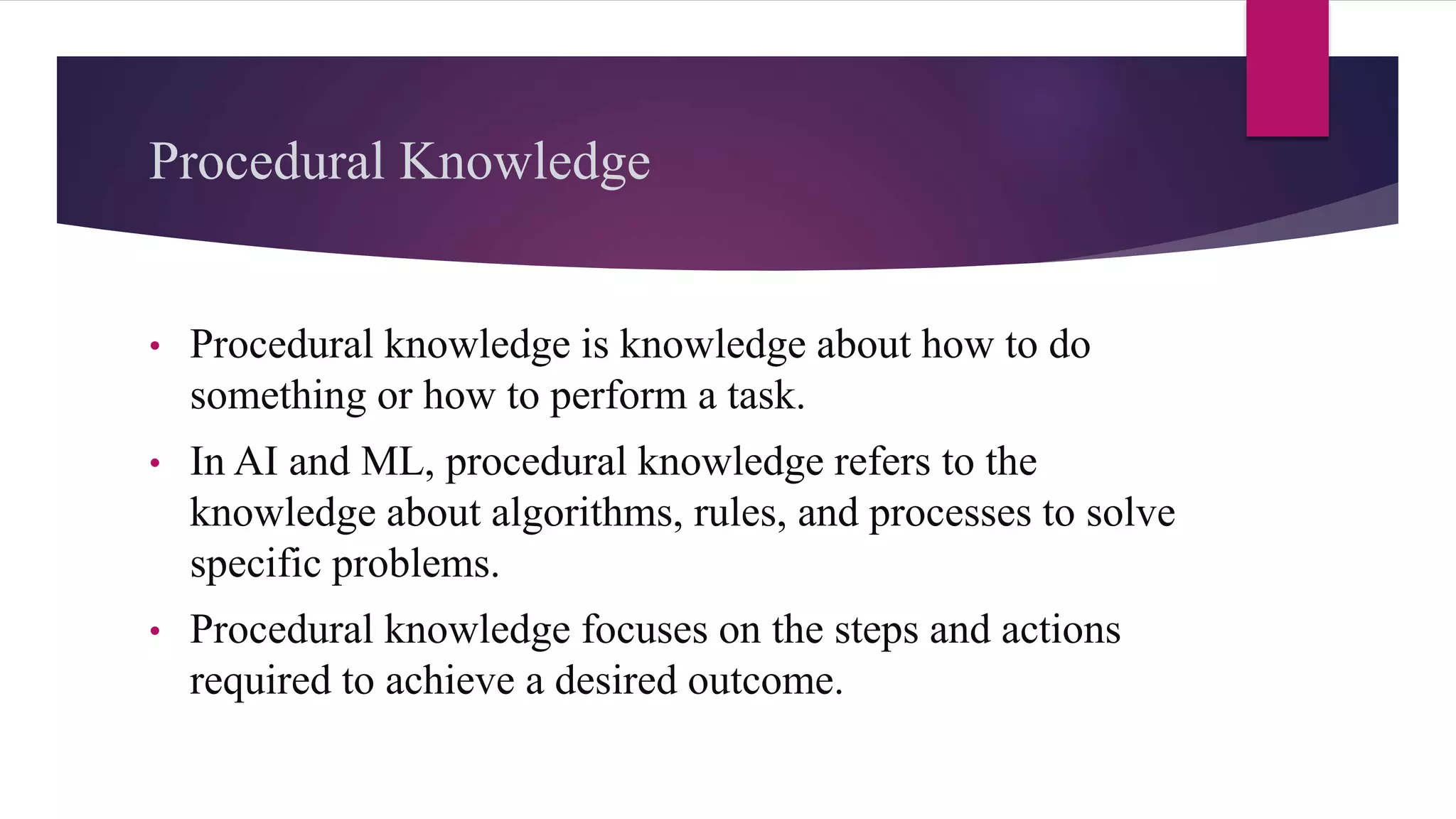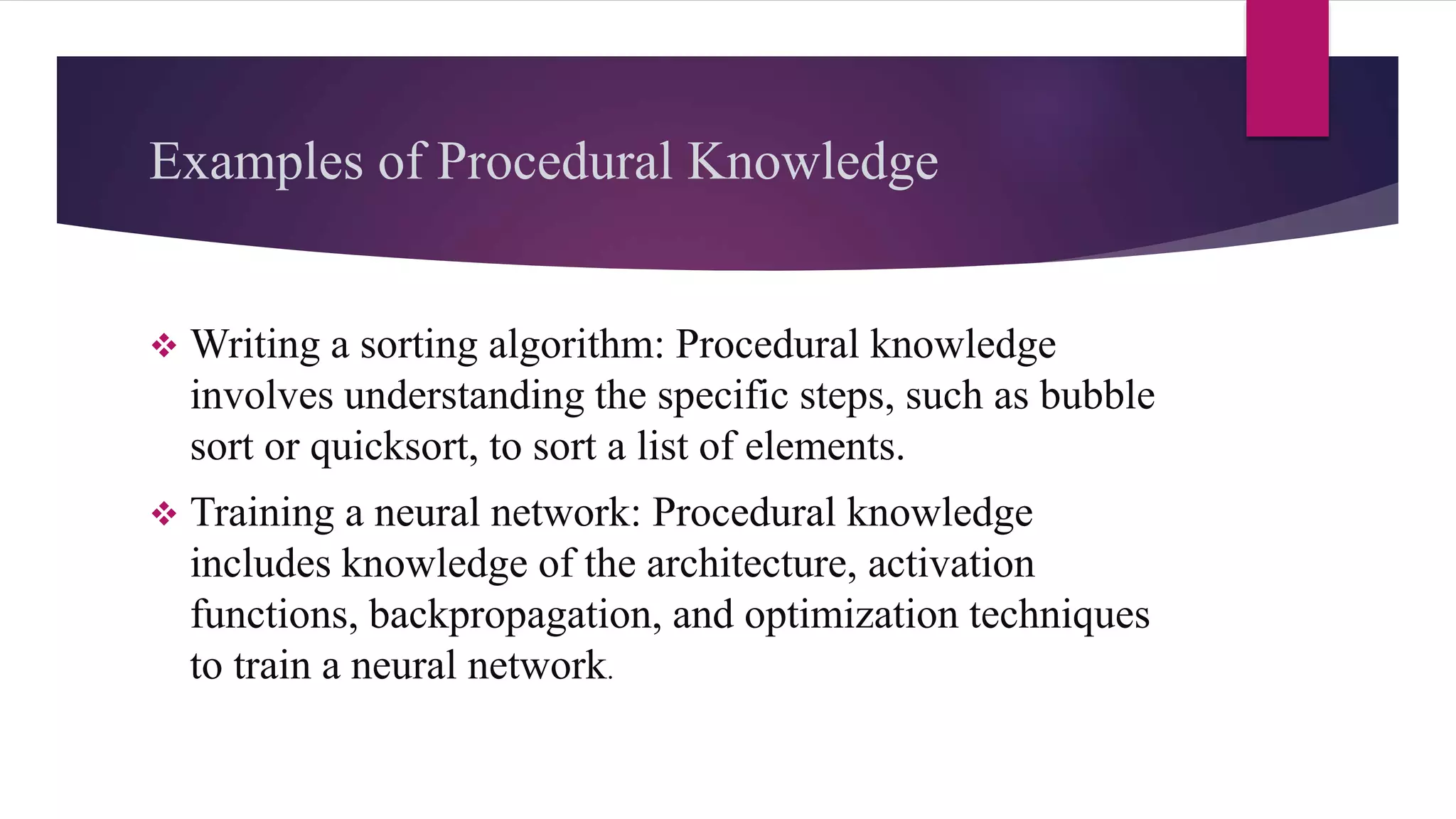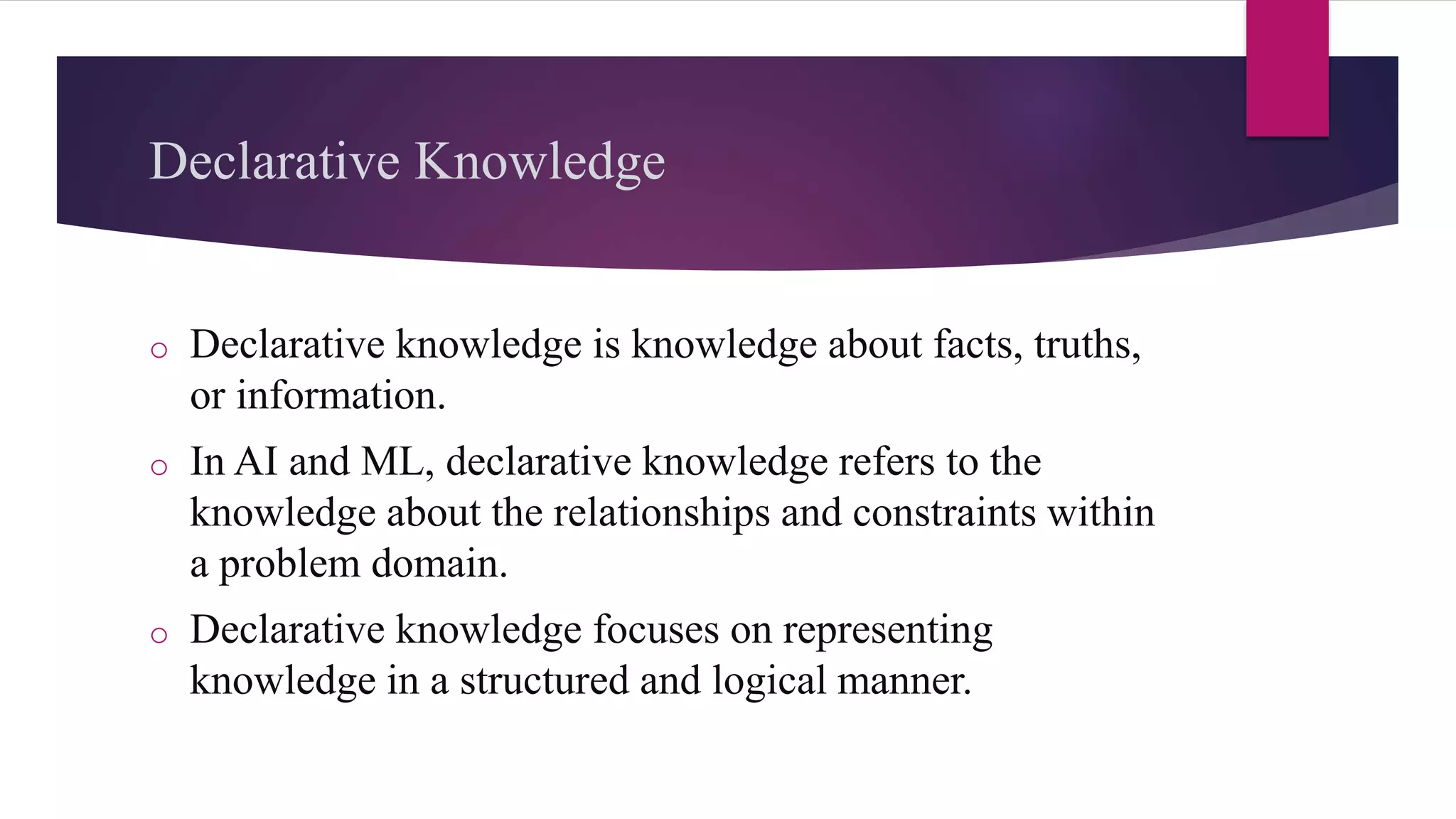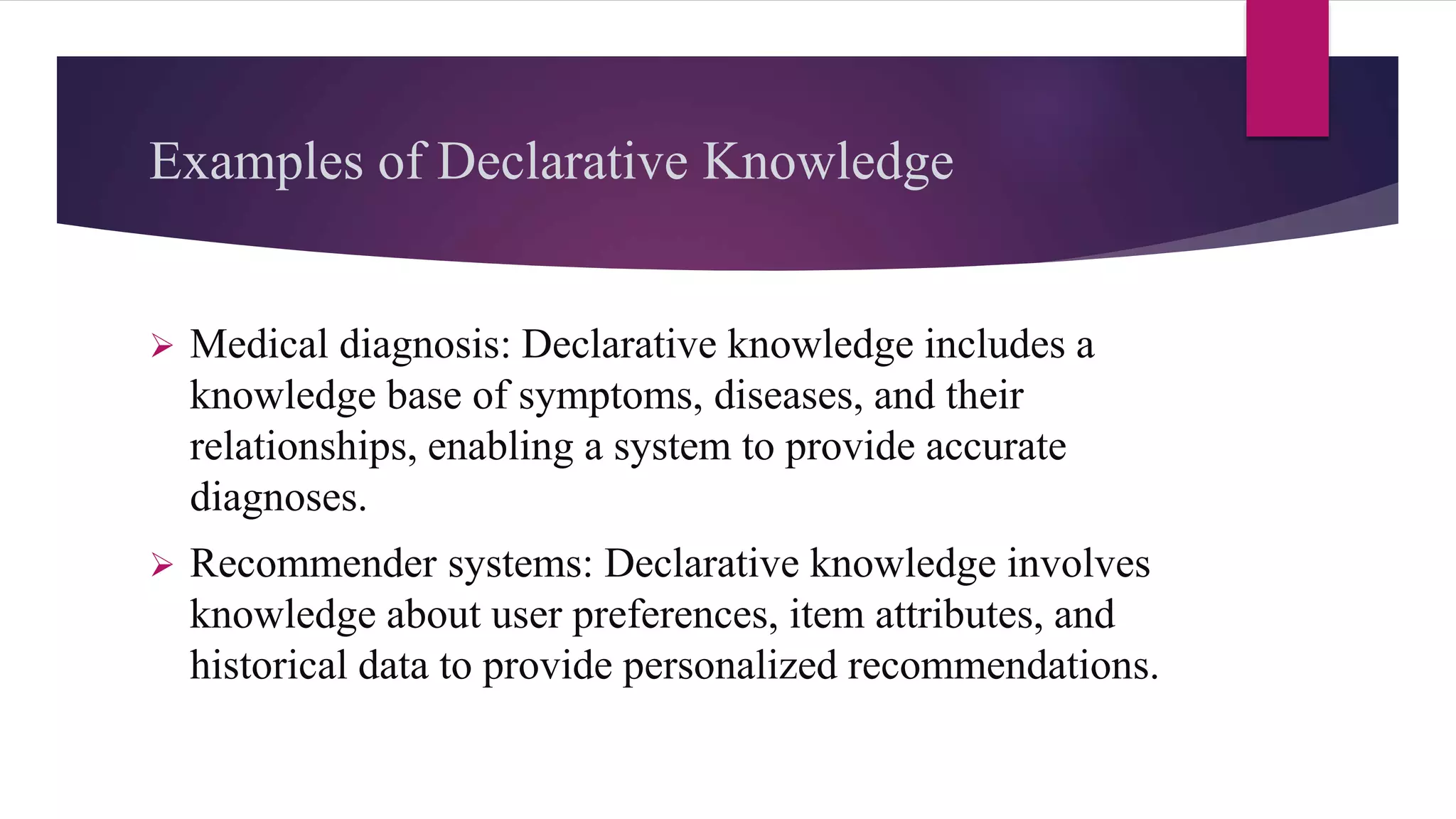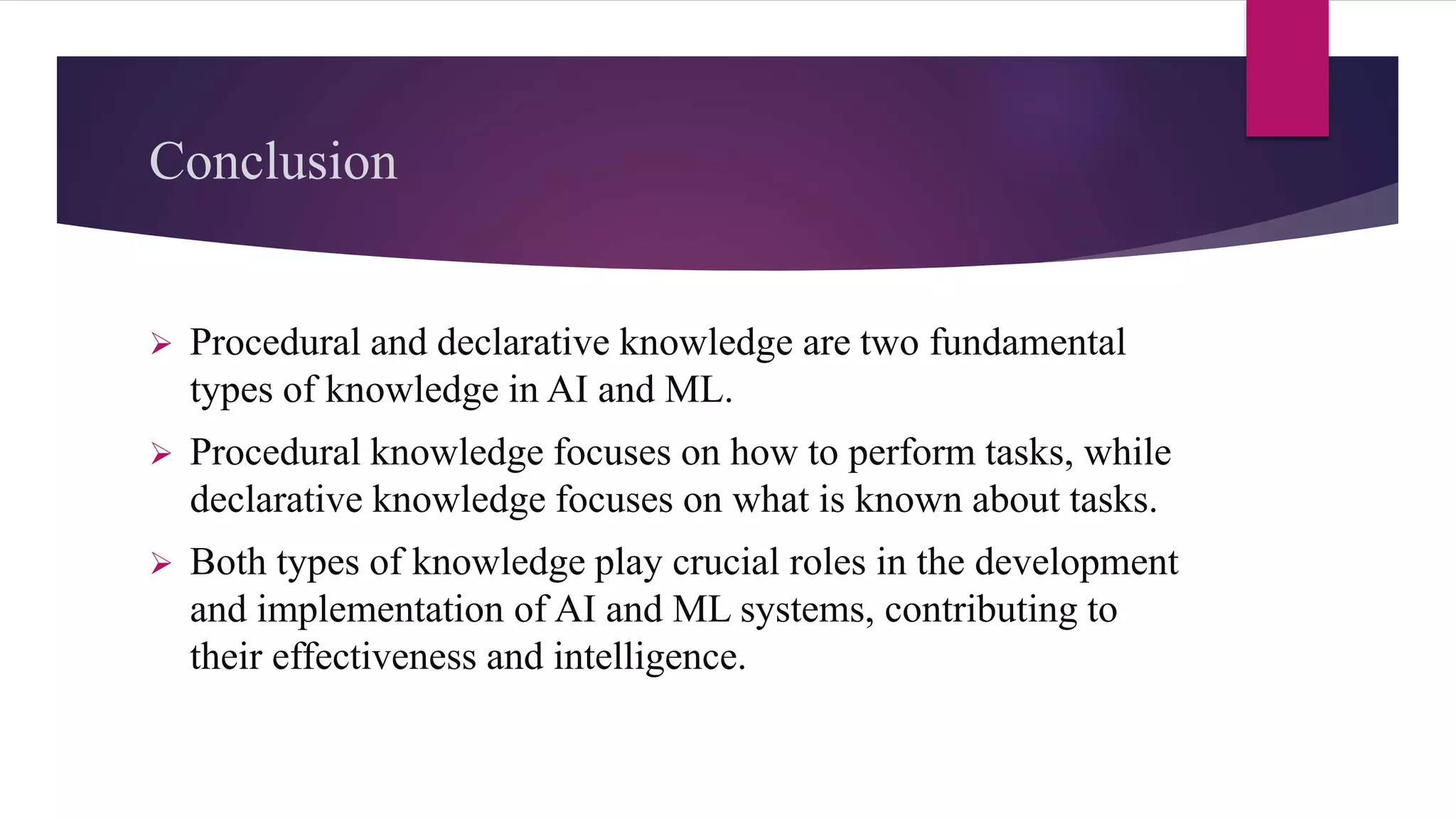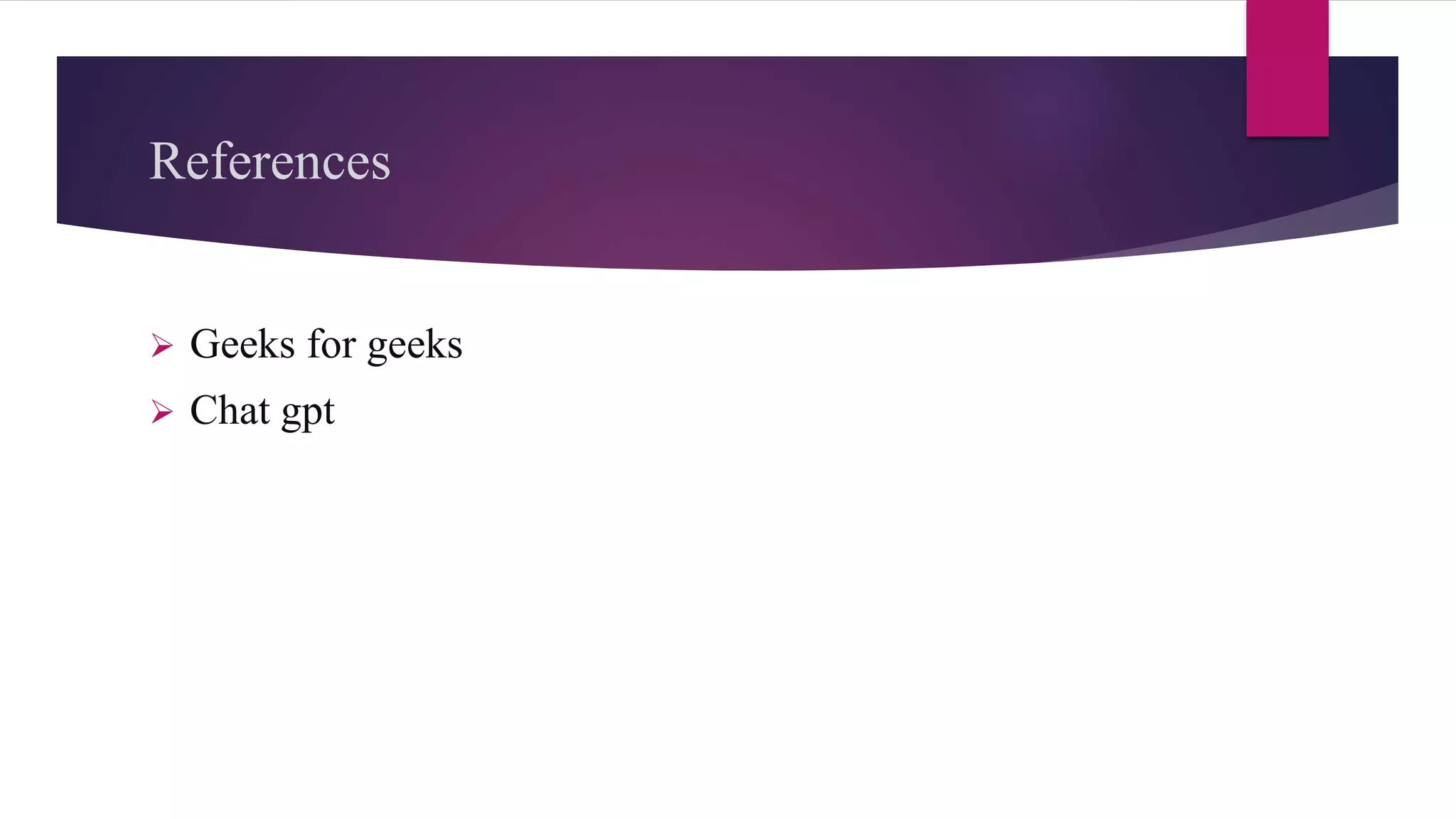This document discusses procedural and declarative knowledge in artificial intelligence and machine learning. Procedural knowledge refers to knowledge about algorithms, rules, and processes to solve problems, focusing on the steps to achieve an outcome. Declarative knowledge refers to knowledge about facts, relationships and constraints within a problem domain, focusing on representing knowledge in a logical structure. Both types of knowledge are important for developing effective AI and ML systems, with procedural knowledge concerned with how to perform tasks and declarative knowledge concerned with what is known about tasks.
